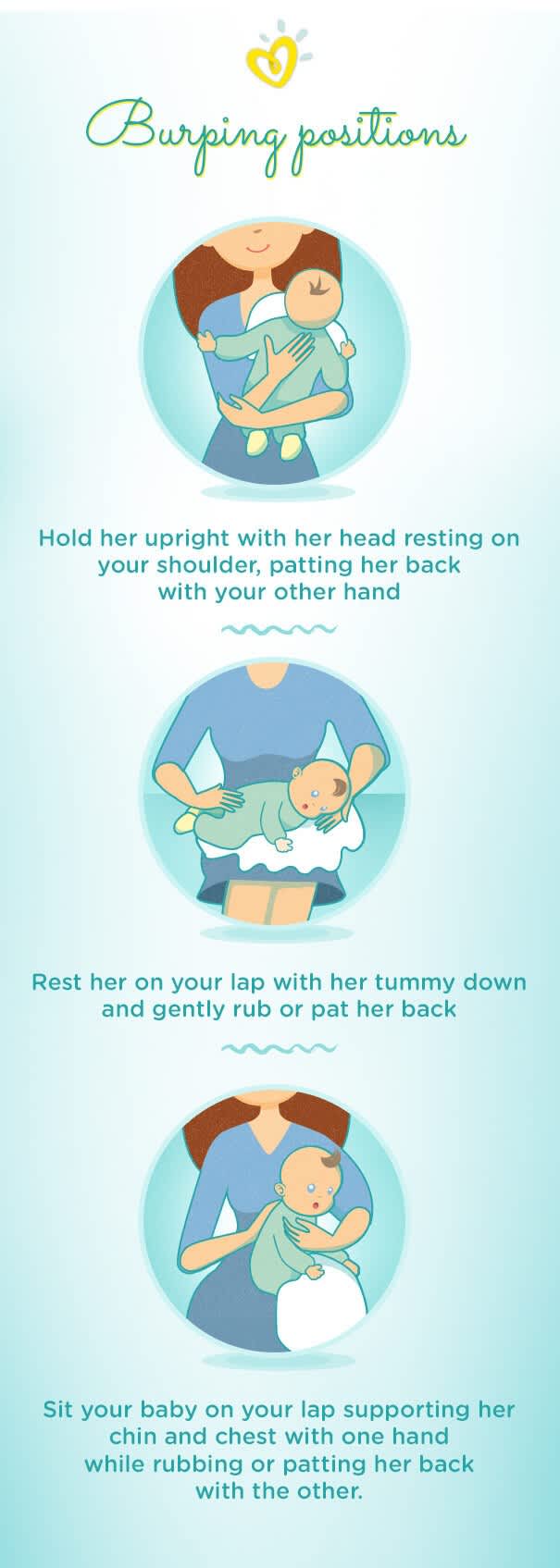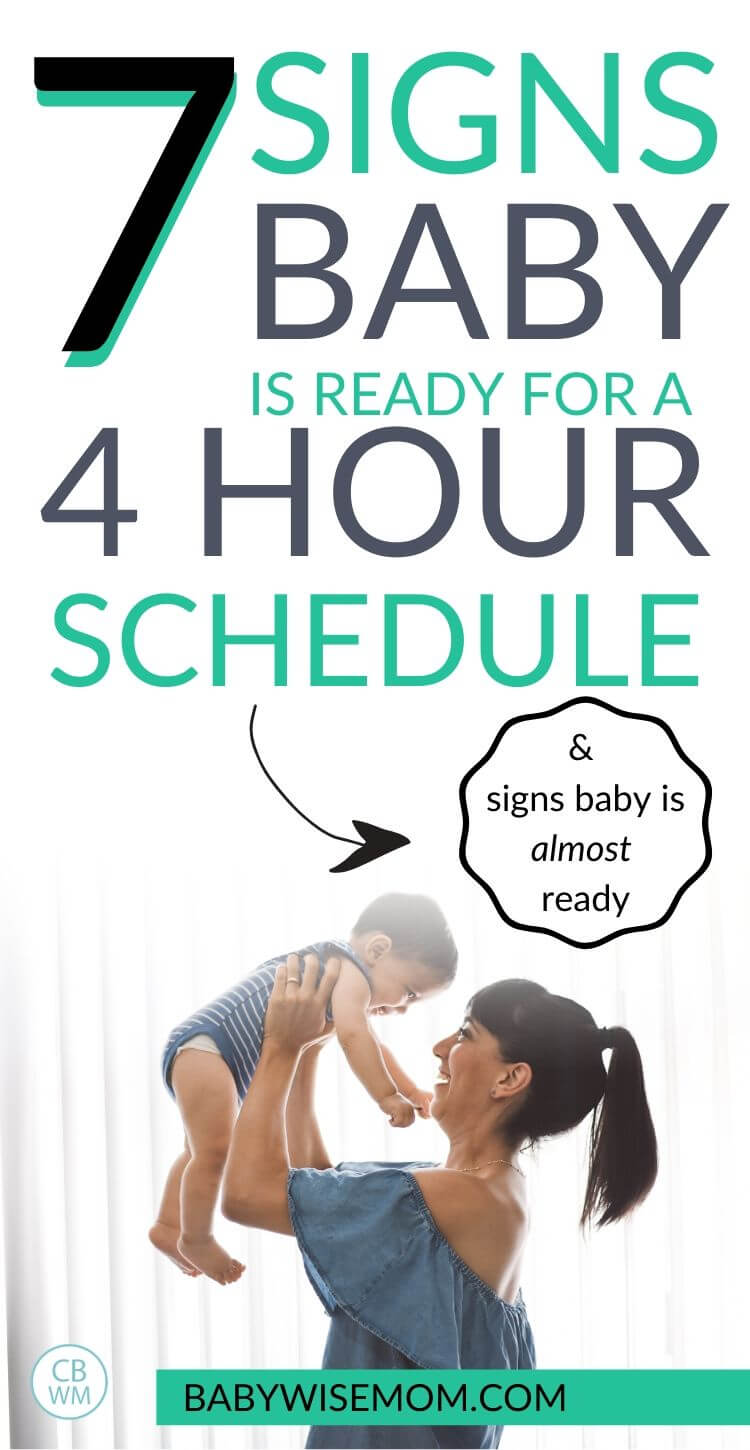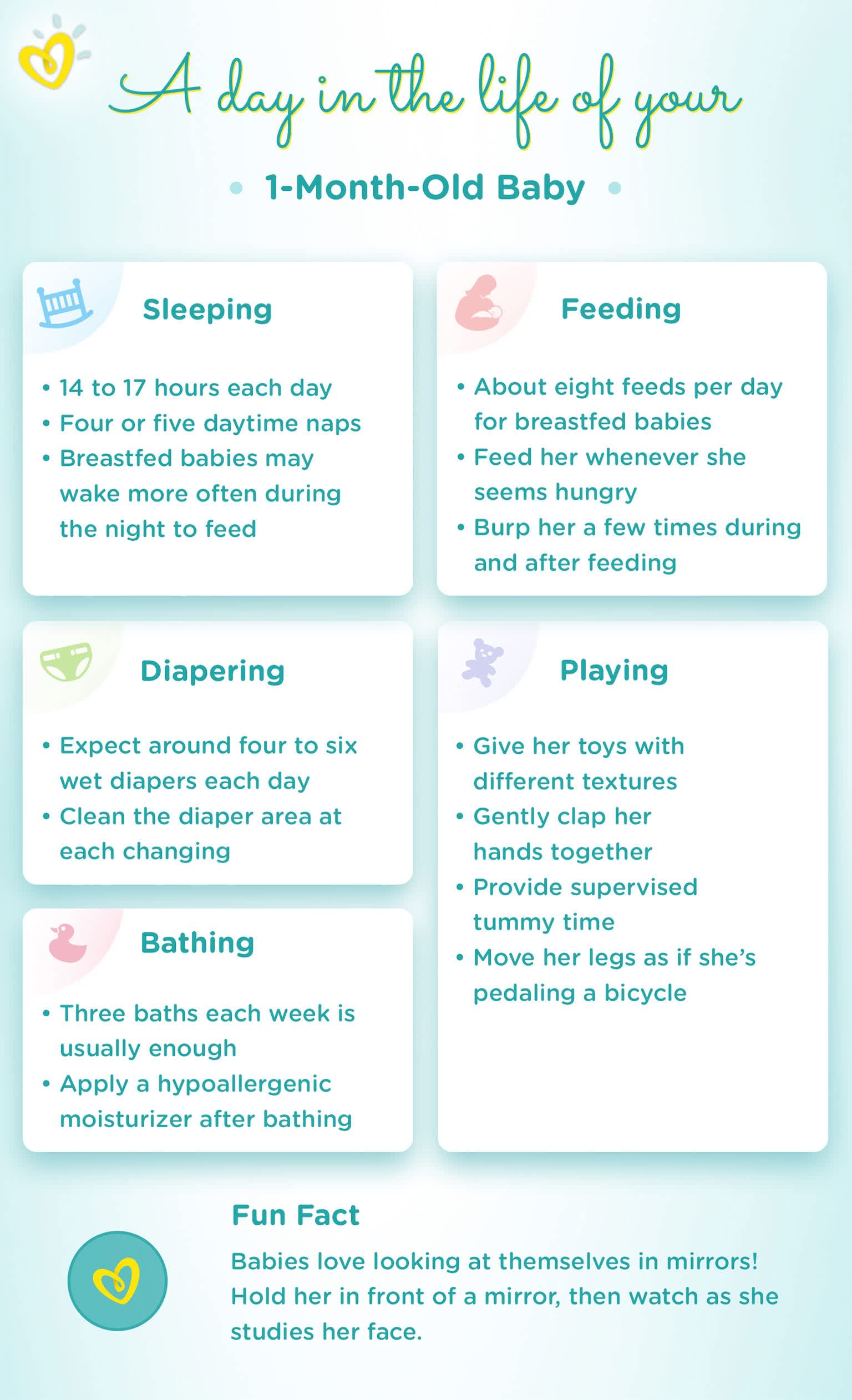Can A 1 Month Old Go 4 Hours Between Feedings
One common way to do this is to simply stretch the time in between each night feeding tacking on an extra 15 to 30 minutes every other night. For both breastfed and bottle-fed babies.

8 Month Old Baby Baby Month By Month Baby Month By Month 7 Month Old Baby Food 8 Month Old Baby
Sticking to a schedule of eventsa bath feeding reading a book then bedwill signal.

Can a 1 month old go 4 hours between feedings. Eat at 4 pm Catnap from 530-6 Eat and bedtime by 730 Eat again at 1030-11pm Sleep till about 430 and eat again Up for the day at 730 to start again. 120 to 150 mL 4 to 5 oz per feeding about 8 times a day. At 4 months your.
It may only take your baby about 5 to 10 minutes to empty the breast and get all the milk they need. Many babies who are born full-term and are healthy can go through the night without a feeding by about 6 months. At this age your baby should drink about 4 to 5 ounces per feeding.
As newborns get older theyll nurse less often and may have a more predictable schedule. During the first few months feeding times gradually get shorter and the time between feedings gets a little longer. Every 2 to 3 hours.
Some might feed every 90 minutes whereas others might go 23 hours between feedings. Baby needs to be old enough to go 4 hours between feedings both for the length between feedings and also because going 4 hours between feedings means dropping the number feedings in a day. You may be wondering how much to feed your 1-month-old baby as she grows.
Most formula-fed babies should get around 4 ounces every four hours beginning when theyre about a month old until they start solids at 6 months though it depends on your little one and most babies under 1 month need less formula than that. Baby is at Least 12 Weeks Old. Hopefully your baby will start to sleep longer and longer until eventually she stops waking to eat altogether.
Feedings every 2-3 hours on demand. 15 to 20 minutes per breast or 2 to 5 minutes after breast is empty 8 to 10 times a day avoid going longer than 5 to 6 hours without pumping Formula. By the end of 3 months your baby may need an additional ounce at each feeding.
You will just know when your baby is ready. Most newborns eat every 2 to 3 hours or 8 to 12 times every 24 hours. Every 4 to 5 hours.
Your baby will consume 6 to 8 ounces 180240 mL at each of four or five feedings in twenty-four hours. However most babies will drink more and go longer between feedings as they get bigger and their tummies can hold more milk. This allows you to space out feedings by about three to four hours.
How Do I Count the Time Between Feedings. By 9 to 12 months. 3 to 4 Months.
Babies might only take in half ounce per feeding for the first day or two of life but after that will usually drink 1 to 2 ounces at each feeding. By the time theyre 2 weeks old they should drink about 2 or 3 ounces per feeding. Cap out at 32 ounces of formula in a 24-hour period.
Sorensen a pediatrician in Reno Nevada explains that by the time theyre this age most babies can sleep comfortably for at least six hours without waking up to eat. By the end of the first month. Continue to feed your baby whenever she seems hungry.
Until your newborn regains this lost weight usually within one to two weeks after birth its important to feed him or her frequently. Between 1 and 3 months of age. As your baby reaches her 1-month milestone she will need at least four ounces per feeding to get the nourishment she requires.
Obviously growth spurts are an exception and you should feed as needed during those. But what may surprise new parents is how often the baby gets hungry. Even if you dont mind getting up at night to feed your.
Still drink about 4-6 ounces per feeding when theyre 4 months old. When your baby is between 2 and 3 months old its time to introduce a bedtime routine Dr. Lactation consultant Karyn-grace Clarke says.
Feeding Your 1-Month-Old Baby. The goal is to separate eating from going to sleep so that if your toddler does wake up at night he wont need your breast or a bottle to get back to sleep. But once hes past the 6-month marker skip the midnight snack.
Newborns to 3 months old. At this age thats probably about eight times in a 24-hour period for breastfed babies or about every three to four hours for bottle-fed babies. Youll also notice that your baby is starting to sleep longer at night.
Every 4 to 5 hours. By the time a baby is 3 to 4 months old they are breastfeeding gaining weight and growing well. Many newborns will have a day or two of nursing around the clock and then they tend to fall into a pattern of nursing every two to three hours.
Moving from a 3 hour routine to a 4 hour routine definitely helped all of us. What you need to know Breastfeeding. Hayden is happy hanging out with us a bit more during the day and is less hungry between feedings and at night.
1-2 feedings per night or every 3-6 hours on demand. Your newborns feeding schedule will gradually become more predictable over time and youll need to adjust the amount of formula as she grows. Your baby will be up to at least 4 ounces 120 mL per feeding with a fairly predictable schedule of feedings about every four hours.
On average your baby should take in about 2½ ounces 75. On demand every 2 to 4 hours or 7 to 12 times a day or more Exclusive pumping. Most newborns lose weight in the first few days after birth.
At 4 to 6 months. Some babies might be up for 25 hours and then nap for 15 hours. Growth spurts are generally over within a week.
Experts agree that if your baby is younger than 6 months old you should feed him whenever he wakes at night. But somewhere between one and six months of age babies tend to settle into a three-naps-a-day pattern where each nap can last an hour or two before going to. Every 3 to 4 hours.
Newborns should not go more than about 4 hours without feeding even overnight. Everyone knows newborns need feedings day and night. This might mean occasionally waking your baby for a feeding especially if he or she sleeps for a stretch of more than four hours.
During the second month infants may take about 4 or 5 ounces at each feeding. Birth to three months. As your baby grows he or she can eat more at each feeding and may go for longer stretches between feedings.

1 Month Old Baby Milestones Sleep Feeding Schedule Pampers

When And How To Move Baby To 4 Hour Schedule Babywise Mom

How To Wean Your Baby Off Night Feeds Step By Step Guide Baby Ready New Baby Products Weaning

Love For Your Newborn Baby Is The Greatest Gift That You Can Give Your Infant Boy Or Girl This Will Teach You How T Baby Feeding Baby Food Recipes Baby Eating

1 Month Old Baby Milestones Sleep Feeding Schedule Pampers
Posting Komentar untuk "Can A 1 Month Old Go 4 Hours Between Feedings"